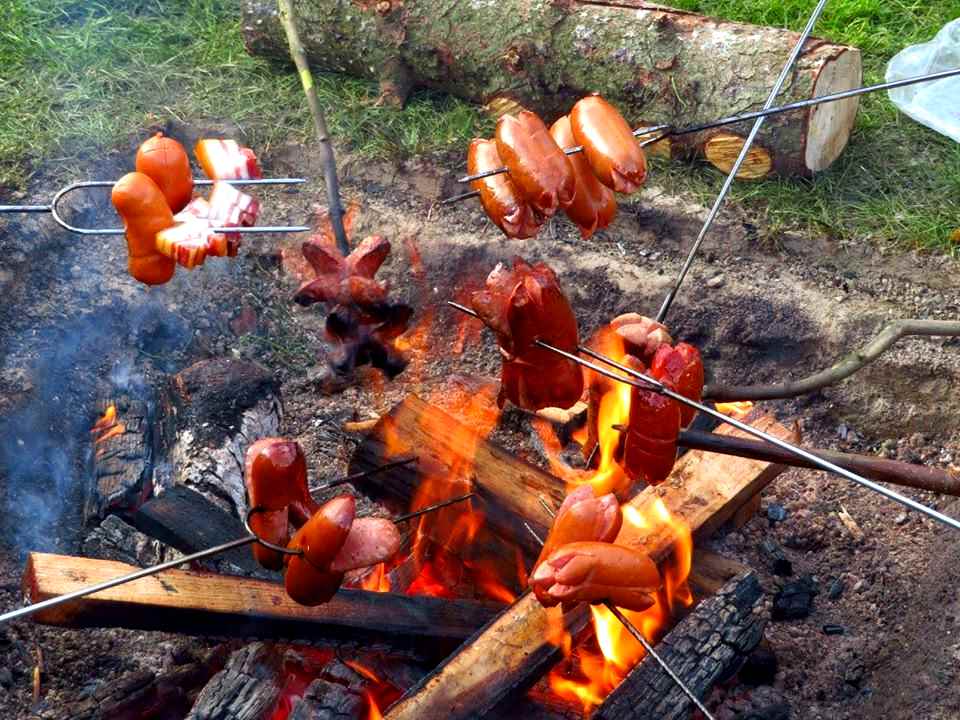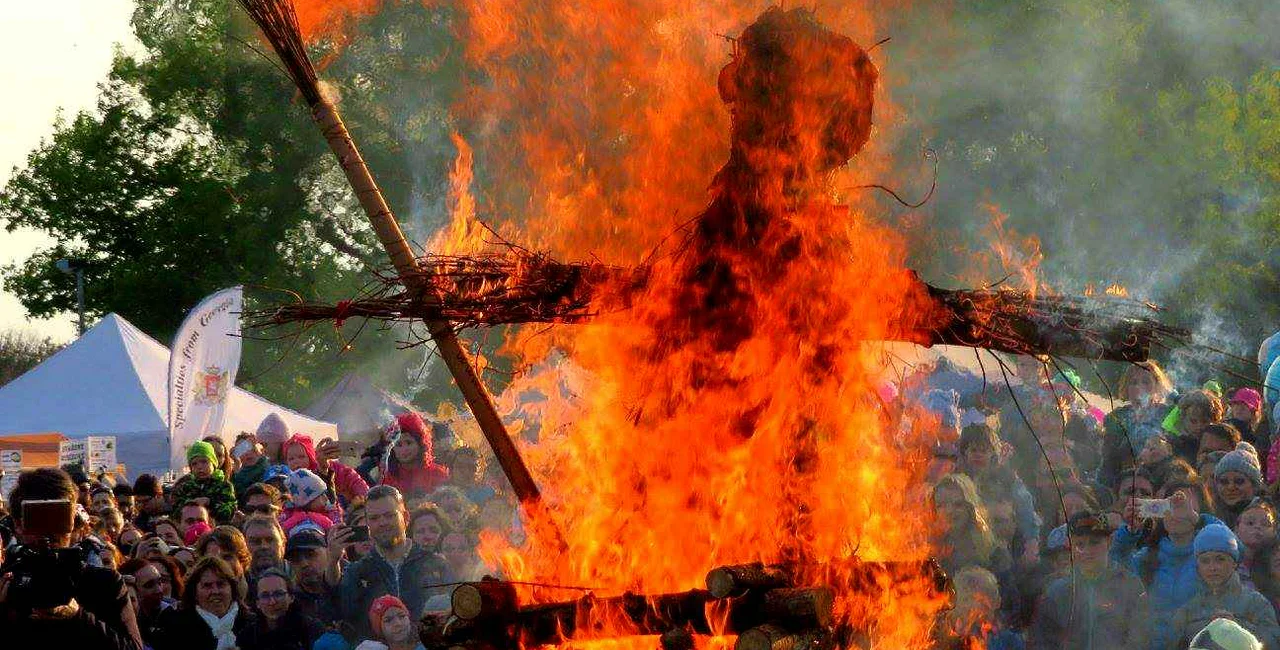Large Witches Night celebrations have been canceled. Large gatherings this year are banned due to coronavirus restrictions, but firefighters are also asking individual people also not to make any bonfires due to extremely dry conditions brought on by drought.
The traditional large gatherings for Witches Night, or Čarodějnice, at Kampa, Ladronka, Žluté lázně. Chodovská tvrz, Chvalská tvrz and Hostivař dam have all been canceled due to the ban on public gatherings.
PARTNER ARTICLE
“We apologize to all the fans; we waited and hoped until the last possible moment. Due to the development of events in recent days, but we must cancel this year’s Čarodějnice at Ladronka. We hope that you will keep our favor, and we will enjoy it even more next year! Thank you,” the organizers of the Ladronka event said when it became clear that such gatherings would not be allowed.
While private bonfires are not outfight forbidden, firefighters ask people to use extreme caution if they have one this year, as there have already been a large number of fires in nature areas throughout the month of April.
“The Czech Republic has the worst drought in the last 500 years. Let’s not burn the witch this year, please. … The fire department will thank you,” Prague Fire Department spokesman Martin Kavka said on Twitter.
V Česku je nejhorší sucho za posledních 500 let #čtk
Pojďme letos ty čarodějnice nepálit prosím ? … stejně uschnou.
…a hasiči vám poděkují ?#carodejnice
— Martin Kavka (@MartinKavka) April 29, 2020
Firefighters are also asking people to go to a special website to notify them in advance of any planned large fires. Companies are legally required to do so, but authorities also want private individuals to comply as well.
Strict rules apply for fires. It is forbidden to start a fire in tall dry grass or at a distance of less than 50 meters from the edge of a forest. Due to flying sparks, a safe distance from residential and farm buildings is required.
“We can recall the regulations valid from the time of [Austro-Hungarian Emperor] Joseph II, when only one municipal fireplace behind the village was allowed at a safe distance from the nearest building,” Fire Department spokeswoman Nicole Studená said.
Last year on Čarodějnice, firefighters went to 64 fires, which was fewer than in previous years, but it had rained in late April 2019, reducing the risk of fires spreading.
During April 1–26, 2020, there have been 2,676 fires throughout the Czech Republic, especially in nature areas. The worst day was April 6,with almost 300 fires, six times the long-term daily average.
Fires at Čarodějnice were canceled in 2018 due to drought, and several events took place but without a bonfire. Even so, firefighters were called out to 136 fires that day. In 2019, conditions were still dry but public events were allowed to have fires if they followed strict safety measures.

This year, Čarodějnice leads into a three-day weekend, as Friday, May 1, is a national holiday. Restrictions on the free movement of people have been lifted, though masks are required and large gatherings are still banned.
“Czechs should not forget that it is allowed to associate in groups of a maximum of ten people, two-meter safety distances apply and face coverings are mandatory in public,” Interior Minister Jan Hamáček (ČSSD) said.
Many people, though, seem to be planning to be doing outdoor grilling. Supermarket chains have reported large interest in sales of sausages, hamburgers, grilling meat, bacon and mustard.
The idea behind Čarodějnice goes back to pagan times. April 30 was allegedly when witches would gather on high mountains. The fires were built on hills to ward off the evil, as the smoke drives the witches away. In Germany, the event is called Walpurgisnacht, which refers to the eve of the feast of St Walpurga, who can be called on the fight infestations, rabies and witches.
For large public events, an effigy such as a broom in old clothes or large rag doll is placed in the center of a stack of logs, and people gather around to watch it burn. After the fire goes down to embers, people use it to roast sausages on long forks.
The fire is symbolically meant to prevent evil spirits from returning after winter. It is not a re-enactment of witch trials and executions that took place across Europe largely in the 1600s.
Private people usually skip having an effigy and simply make a fire to cook sausages on a stick while they drink wine and beer.












 Reading time: 3 minutes
Reading time: 3 minutes 



























